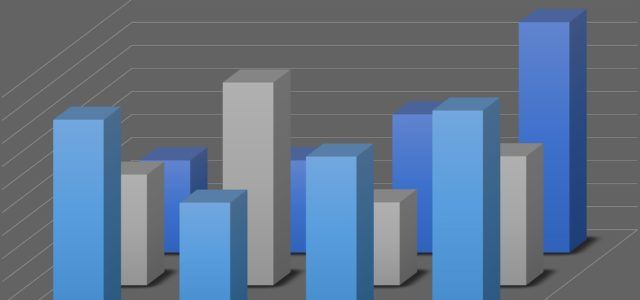Throughout 2017 and most of 2018, the Internet of Things (IoT) has been a huge buzzphrase. Many called for its widespread adoption, warning of dire consequences for those who refused to take part.
As the business world incorporated IoT technologies more and more, several benefits were realized — not the least of which is a boost in efficiency and output. It does help explain why firms like Gartner might predict the total number of interconnected devices will jump to 13.5 billion by 2020. Lofty estimate, yes, but more than reasonable.
As we prepare to dive into 2019, it makes sense to consider just how impactful IoT technology is in the current state of the business world. What has it truly contributed and how has it improved progress? More importantly, were the claims about its remarkable potential ever realized?
Overcoming Current Challenges
One thing to understand upfront is that, while IoT does offer remarkable potential, there are many challenges that must be overcome, some of which have only cropped up in recent years.
According to Capgemini’s “Unlocking the Business Value of IOT in Operations,” the technology currently provides the most value in environmental monitoring, inventory intelligence, smart metering and renewable energy plant supervision.
Enterprises spread across manufacturing, retail, automotive, energy and utilities, as well as consumer products, have all failed to realize the tech’s full potential thus far. It is because they have yet to pursue some of the most lucrative real-world use cases.
Furthermore, 60 percent of enterprises do not have the analytics capabilities to collect, process and extract data generated from IoT platforms.
It would seem the biggest challenge is still a lack of motivation to deploy IoT solutions on a wider scale. If and when they are deployed, companies are still woefully inefficient at leveraging what the technology has to offer.
IoT’s Positive Impact
Despite facing challenges and shortcomings, the business world has improved considerably thanks to the technology. Those willing to take the chance and incorporate its use have come across a limitless supply of profitable applications.
For starters, everything tends to be faster, more efficient and more streamlined thanks to IoT platforms. Organizations tend to see more open and collaborative processes born as a result, which translates to better service for customers.
More importantly, transparency and tracking are improved on many levels. IoT sensors as a means for inventory management, for example, allow for real-time insights about goods, storage, fulfillment and even distribution. Logistics processes will benefit considerably from the influx of new data.
Remote work is now feasible in industries and fields where it never was before. IoT expressly allows for remote monitoring in many forms, especially via mobile, which can be leveraged anytime, anywhere.
IoT funding and investments have also increased as a result of the technology’s greater overall success. This is good news for businesses that must seek additional capital to pursue its adoption. Local funding can be especially helpful for startups, allowing them to work closely with bigger corporations and achieve more innovation in their field. It’s important because smaller businesses and startups don’t always have the same access to resources that larger corporations do. Better and more accessible funding means more opportunity to become involved with the technology.
What About the Negative?
All said, IoT has impacted business negatively too.
While IoT certainly does introduce a bevvy of new opportunities and benefits, it also poses some new responsibilities and requirements — particularly elements that businesses rarely had to cope with before its adoption. For instance, devices that were once offline and disconnected from an enterprise network now rely on access. This makes them more vulnerable and at times more prone to failure, and alters the maintenance process in many ways.
The existence of more data presents a hefty burden. There is infinitely more information and content to handle, store and protect. Some digital content and insights could very well be considered trade secrets, so it becomes more important to ensure security and privacy. Cybersecurity is a huge concern these days, putting even more responsibility on businesses when it comes to deploying the appropriate measures.
Another major downside, realized only through more widespread adoption, is that device management can be incredibly nuanced and complex, as is sifting through and handling the related datasets. It’s vital that all devices remain up-to-date with the latest firmware and software. Not only does this keep the systems running optimally, but it also helps secure them. Just the act of maintaining a network of devices alone can be incredibly time-consuming and expensive.
Every Day It Develops Further
It may seem like it has taken a long time for IoT to develop and come into its own, but in reality, it’s only been a short span. Every day the technology progresses even further, and more companies come to realize its potential. It’s not perfect, but it can do a lot of good when applied correctly.
The sooner you start thinking about how it can impact your business, the better off you’ll be, especially if you make the leap and actually incorporate it into your operations.
Article by channel:
Everything you need to know about Digital Transformation
The best articles, news and events direct to your inbox
Read more articles tagged: Featured, Internet of Things







